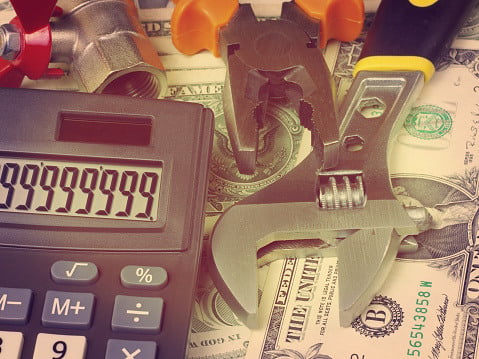 An area where a lot of HOA board members get into trouble relate to properly understanding the operating fund and the reserve fund in a homeowners association. If the two funds aren’t properly maintained a Board can be setting up the Association for failure and don’t even know it. It’s crucial that Boards understand how to use the operating fund and reserve fund, and use them correctly so they don’t find the Association in financial ruin.
An area where a lot of HOA board members get into trouble relate to properly understanding the operating fund and the reserve fund in a homeowners association. If the two funds aren’t properly maintained a Board can be setting up the Association for failure and don’t even know it. It’s crucial that Boards understand how to use the operating fund and reserve fund, and use them correctly so they don’t find the Association in financial ruin.
1. What is the Operating Fund used for?
The operating fund is the monthly or annual budget. It’s used for recurring expenses such as PG&E, water, landscape maintenance, management fees, insurance, etc.
2. What is the Reserve Fund used for?
The reserve fund is used for items that occur over a longer period of time and are generally expensive, such as roof replacement, painting, maintaining streets, or unexpected projects. A number of disclosures are required each year to determine how the reserves are being funded. The Davis-Stirling Act requires that the reserve fund is updated every year, and an actual on site reserve study done every 3 years.
An update of the reserve fund procedures is required because there are often increases in things that the HOA doesn’t have control over which may lead to an increase in HOA fees to keep the reserve fund at the right levels.
3. Where do the funds come from?
The money put into the operating and reserve funds come from HOA fees homeowners agree to pay when they move into the Association. These can be paid monthly, quarterly, or yearly, depending on the homeowners association governing documents.
The HOA board has the authority to raise the combined operating and reserve budget up to 20% above the previous budget. This gives the Board flexibility needed for unforeseen circumstances such as compliance issues when a new law takes effect, damage done by a storm, or increases in operating costs.
4. Who oversees the funds?
The Board as the responsibility of overseeing both the operating and reserve budgets, and is required to review all financial information at least quarterly. If the homeowners association is working with a management company, the entire Board and members know how their money is being used in the Association.
5. How is an HOA board responsible?
The Board isn’t expected to be experts in everything, but is expected to ask the experts and make reasonable business decisions. It’s the Board’s responsibility to work alongside experts, such as accountants or a manager, and look to and understand the law, most importantly the Davis-Stirling Act.
A Board should consider sitting down with a management company to help them with the budget process and provide financial services. This will make sure things are done correctly and the Association will have a budget that reflects what it costs to run its community. Then, when an item becomes due, your HOA will have the money to pay for it.
6. How can HOA manager help?
An HOA manager can help direct and guide a Board through the legal and financial nuances required to keep the operating and reserve fund at the right levels. Not knowing the laws pertaining to the financial position of your Association does not release the Board from liability.
It’s important for HOA board members to sit down with a manager to go through the financial health of the Association. You don’t know what you don’t know. Even if you don’t have a manager, make an appointment/consultation with a trustworthy management company to ask questions, learn about services, and have an overview done of the Association’s financials.
Your HOA board may not be able to afford a full-time manager, or may not even need it, but it does need a wise financial plan put together with the help of a trustworthy expert.









